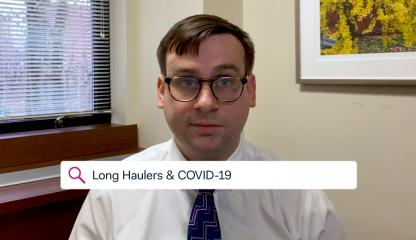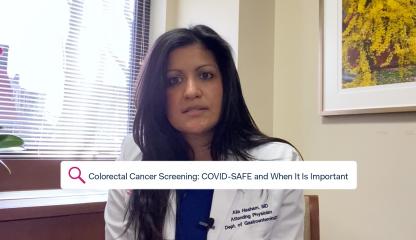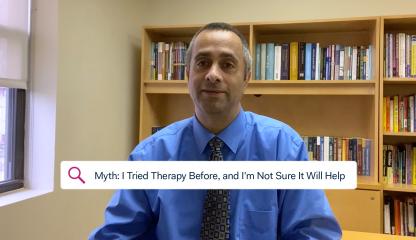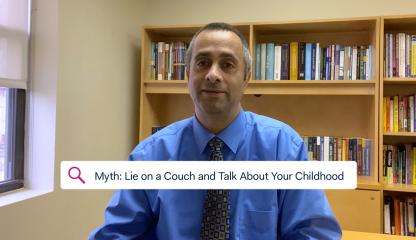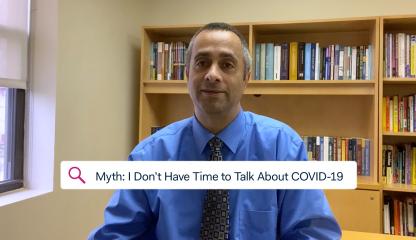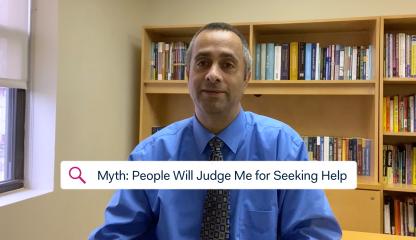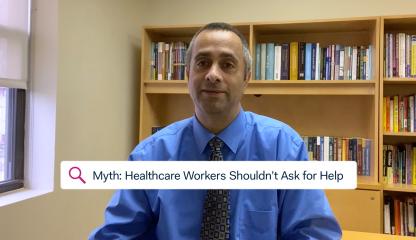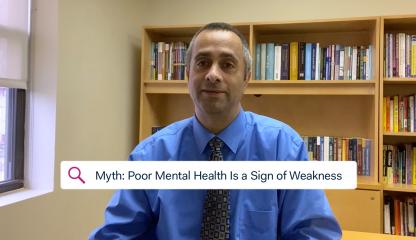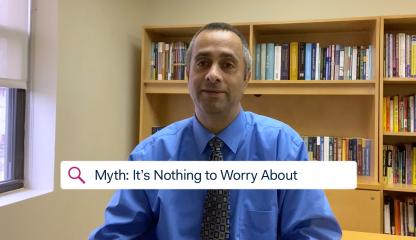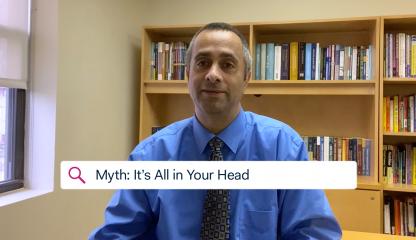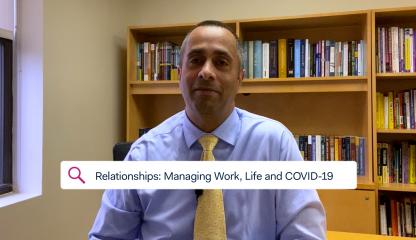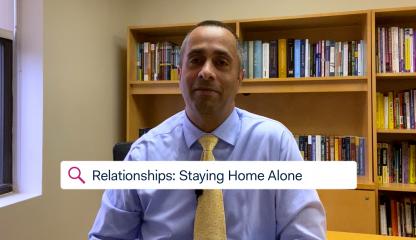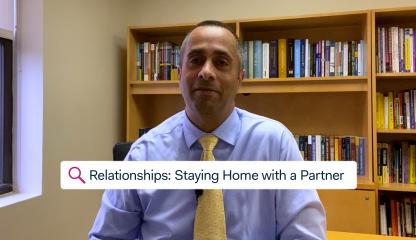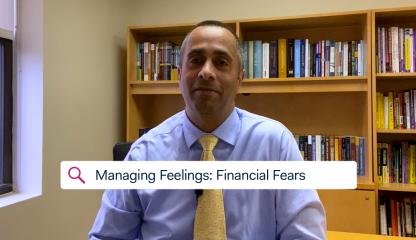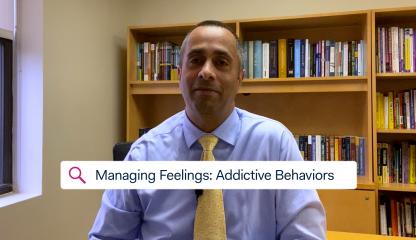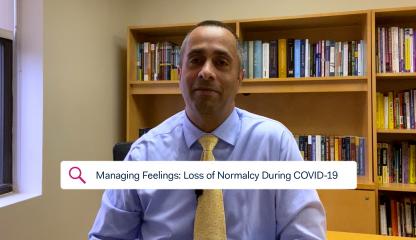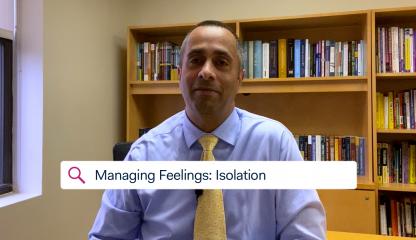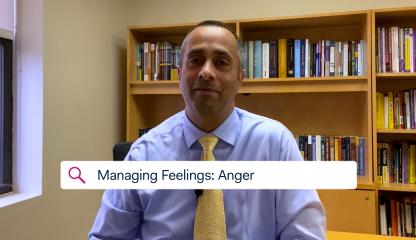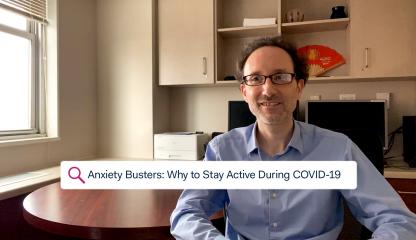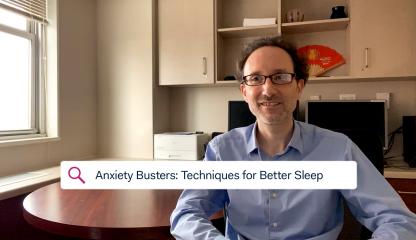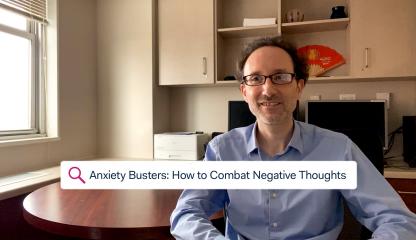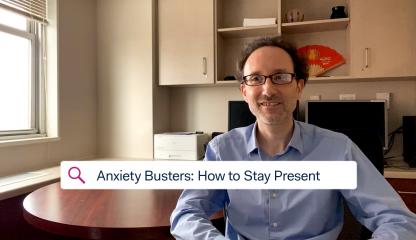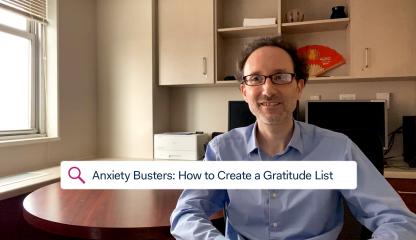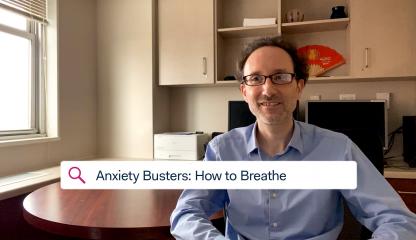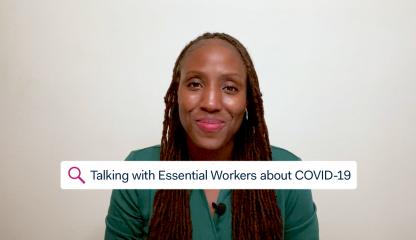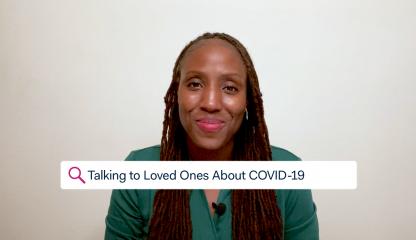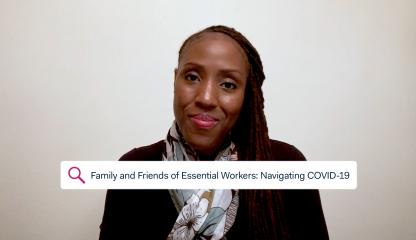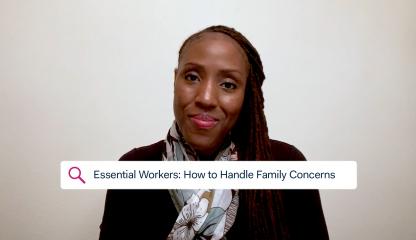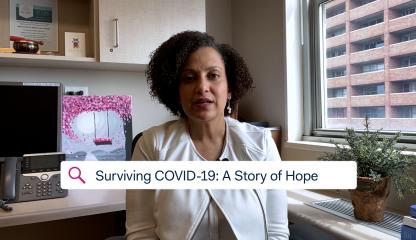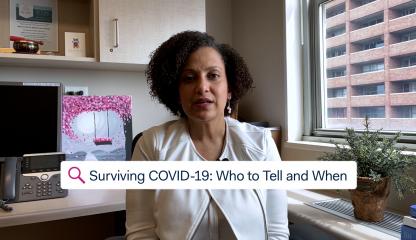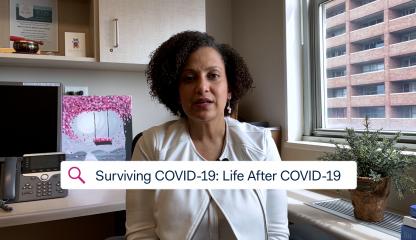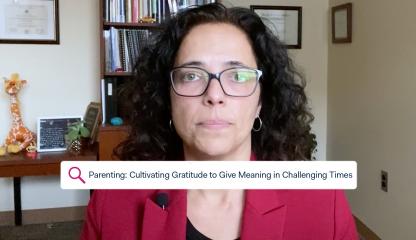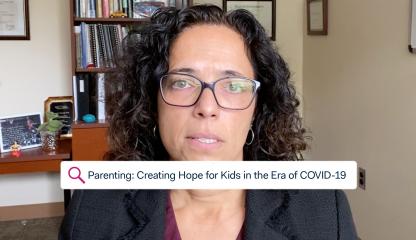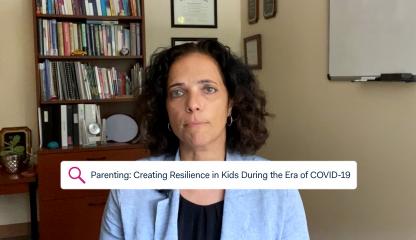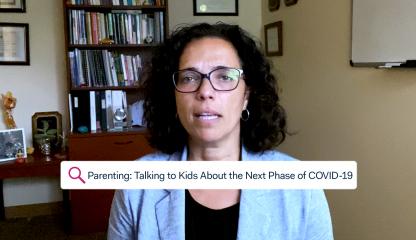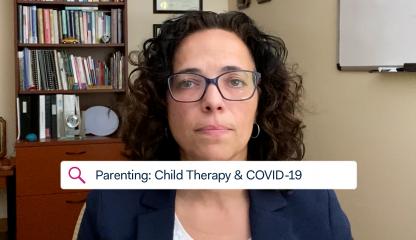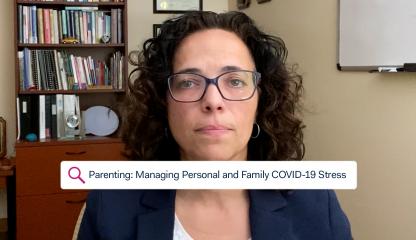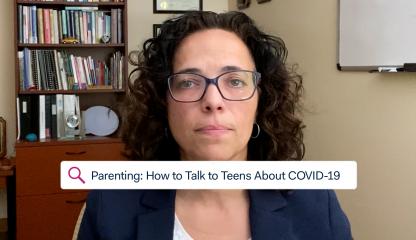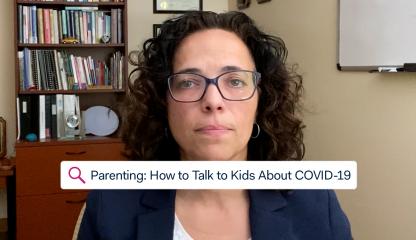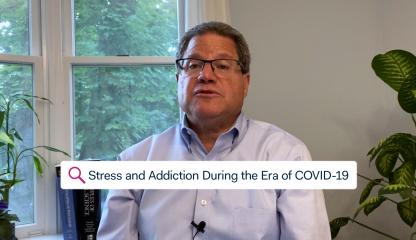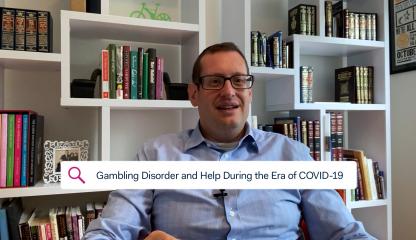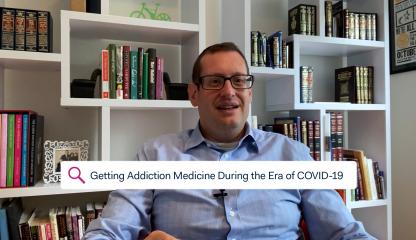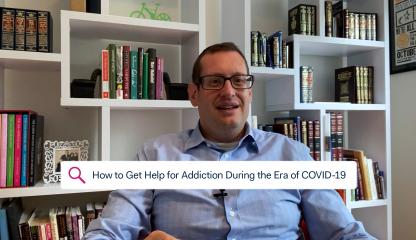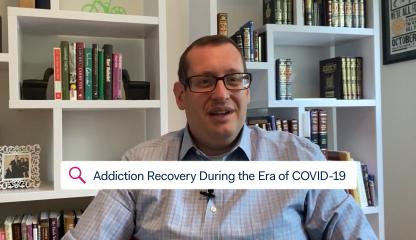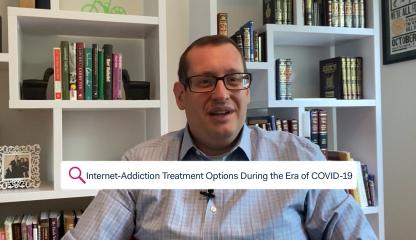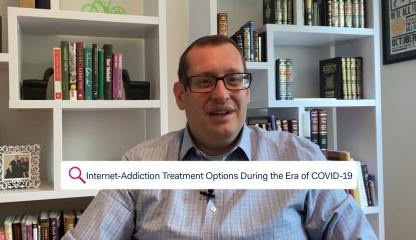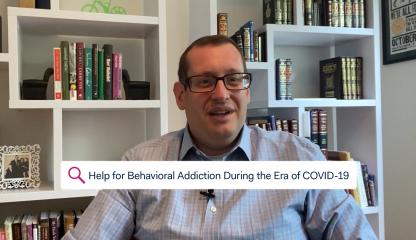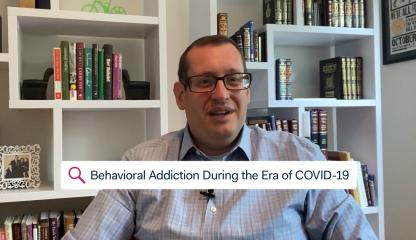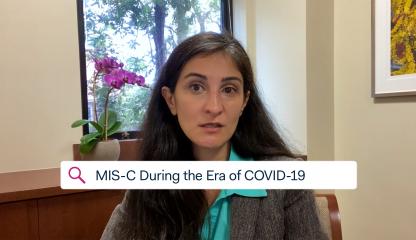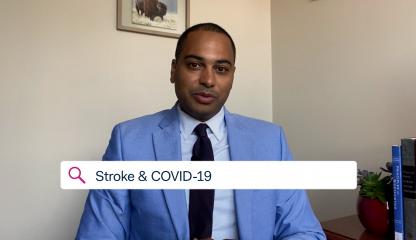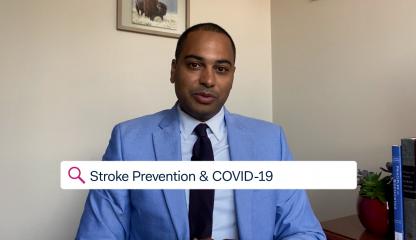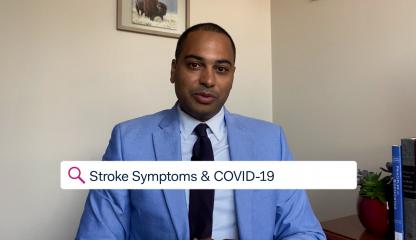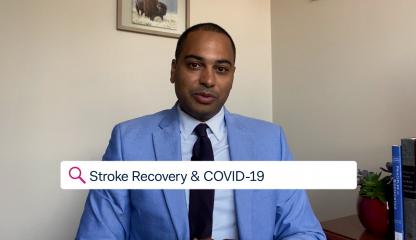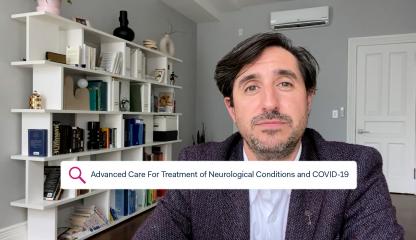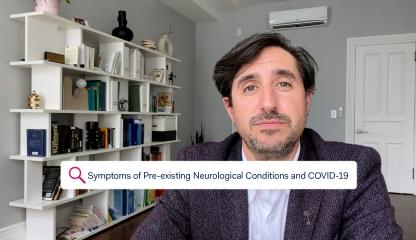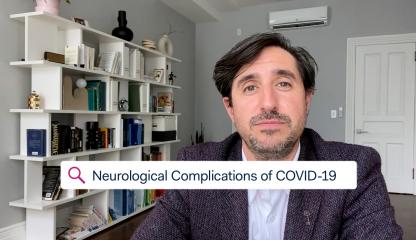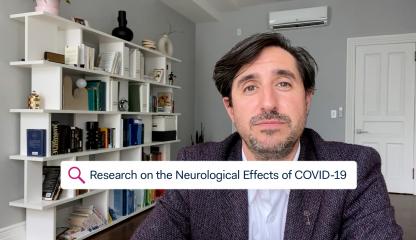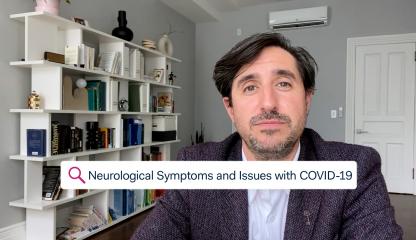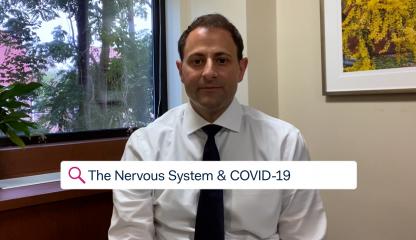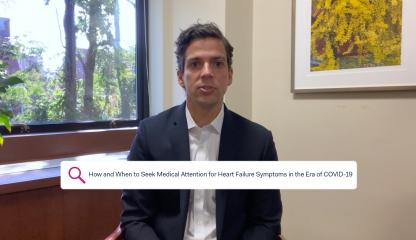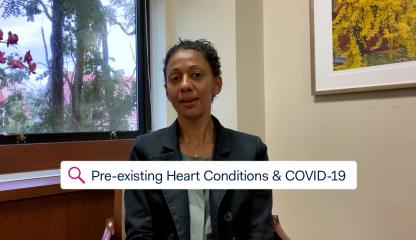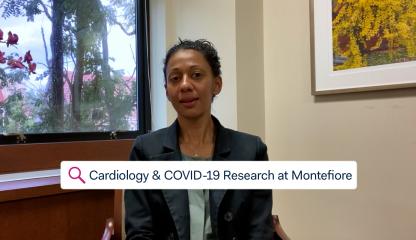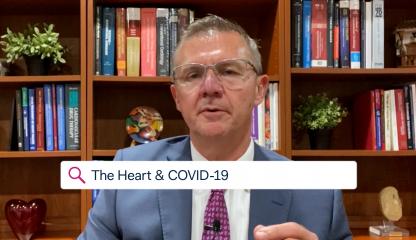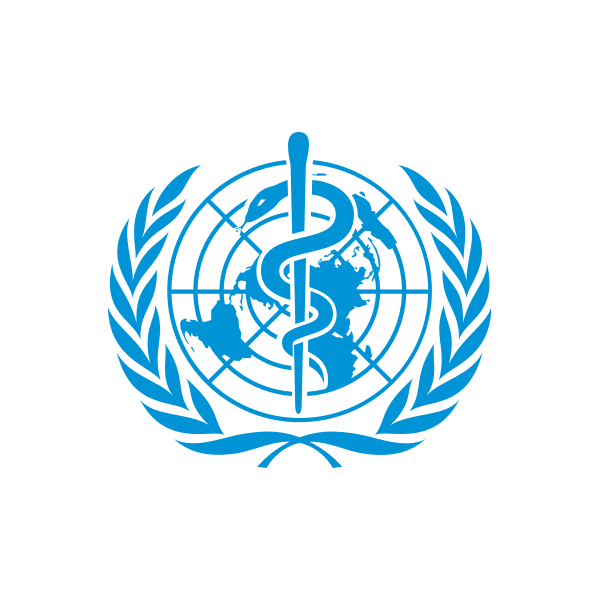Parenting: Managing Both Personal and Family COVID-19 Stress
How can parents manage both their stress and the stress inflicted on their families by COVID-19? Montefiore's Chief of Child and Adolescent Psychology, Dr. Sandra Pimentel, shares techniques to help cope and manage stress in these unprecedented times.
Recovery
COVID-19 Recovery
What is long-haul COVID and how does it impact the body? Dr. Seth Congdon, Co-Director of the COVID-19 Recovery Clinic at Montefiore-Einstein, discusses symptoms of the disease, available treatment options, the recovery process and what Montefiore-Einstein's CORE Clinic is doing to help.
Gastroenterology
COVID-SAFE
Why is it important to get screened for colorectal cancer? Dr. Alia Hasham, Director of the Colorectal Cancer Screening Program and Assistant Professor of Gastroenterology at Montefiore-Einstein, discusses colorectal cancer symptoms, how to reduce your risk, the different types of COVID-SAFE screening options available and what to know about screenings during the COVID-19 era.
Mental Health and Coping
Mental Health Myths
I’ve had therapy, and I’m not sure how it can help with COVID-19? Montefiore’s Chief Psychologist, Dr. Simon Rego, explains what COVID-19 treatment looks like and which approach might work best.
How can a therapist help me cope with COVID-19? Montefiore’s Chief Psychologist, Dr. Simon Rego, explains the tools a therapist can provide to help you handle COVID-19, what happens in a session and what to talk about.
I'm just too busy with family and work. How can I find time for my COVID-19 feelings? Montefiore’s Chief Psychologist, Dr. Simon Rego, explains why finding time is important for our self-care, and recommends small things we can do to talk about our COVID-19 feelings that can fit into a busy schedule.
Will people judge me for seeking help for my fears and anxieties about COVID-19? Montefiore’s Chief Psychologist, Dr. Simon Rego, explains ways to overcome concerns about being judged, and why seeking support to cope during this time is perfectly fine and necessary.
I’m supposed to be providing COVID-19 help, not asking for it. Montefiore’s Chief Psychologist, Dr. Simon Rego, discusses why healthcare workers should ask for and receive COVID-19 help.
Why can’t I deal with my COVID-19 feelings on my own? Montefiore’s Chief Psychologist, Dr. Simon Rego, explains why it’s not weak to ask for help and why you might need assistance coping with COVID-19.
Why am I always anxious? Do I have COVID-19? Will I lose my job? Montefiore’s Chief Psychologist, Dr. Simon Rego, explains how part of our brain works to keep us safe from something that could go wrong, and where and when to seek help for COVID-19 anxiety.
Is it normal to think about COVID-19 all the time? Montefiore’s Chief Psychologist, Dr. Simon Rego, discusses why it's normal and whether to seek help.
COVID-19 and Relationships
How do I juggle work, life and COVID-19? Montefiore’s Chief Psychologist, Dr. Simon Rego, discusses ways to maintain focus and a healthy work-life balance during the COVID-19 pandemic.
How can I best stay home alone? Montefiore’s Chief Psychologist, Dr. Simon Rego, shares tools and techniques to help single people stay home, which can help with social isolation.
How can I best stay home with a partner? Montefiore’s Chief Psychologist, Dr. Simon Rego, discusses ways to work through the challenges of staying home with another person, as well as things to work on together.
COVID-19 and Managing Feelings
How do I deal with my anxiety about finances affected by COVID-19? Montefiore’s Chief Psychologist, Dr. Simon Rego, explains how to manage financial fears during the crisis.
How can I manage addictive behaviors during COVID-19? Montefiore’s Chief Psychologist, Dr. Simon Rego, explains how to avoid negative coping methods during the crisis.
How do I deal with the human toll from COVID-19 and the impact on life as we know it? Montefiore’s Chief Psychologist, Dr. Simon Rego, explains how to cope with the loss of normalcy and changes in our lives as a result of the crisis.
How do I deal with feeling lonely in isolation? Montefiore’s Chief Psychologist, Dr. Simon Rego, discusses managing feelings of isolation during COVID-19, and how to seek help.
How do I manage my feelings of anger toward COVID-19? Montefiore’s Chief Psychologist, Dr. Simon Rego, discusses why it's normal to have strong feelings about COVID-19, how to recognize triggers and things we can do to manage anger.
Anxiety Busters
Keeping your body active is a great way to relieve anxiety and can boost your immune system. Montefiore’s Supervising Psychologist and Assistant Director of the Trauma-Informed Care Program, Dr. Paul Bulman, provides ways to work in regular exercise during the COVID-19 pandemic for physical and mental health.
Getting a good night's sleep can help combat anxiety caused by the COVID-19 crisis. Montefiore’s Supervising Psychologist and Assistant Director of the Trauma-Informed Care Program, Dr. Paul Bulman, provides techniques for sleeping better during the pandemic.
Negative thoughts can create more anxiety. Montefiore’s Supervising Psychologist and Assistant Director of the Trauma-Informed Care Program, Dr. Paul Bulman, provides techniques to combat negative thinking during the COVID-19 crisis, including knowing the triggers and the 3 questions to ask.
Focusing on the moment can help reduce COVID-19 anxiety. Montefiore’s Supervising Psychologist and Assistant Director of the Trauma-Informed Care Program, Dr. Paul Bulman, shares techniques for staying present during this difficult time.
Balancing negative thinking with positivity can help reduce anxiety about COVID-19. Montefiore’s Supervising Psychologist and Assistant Director of the Trauma-Informed Care Program, Dr. Paul Bulman, shows how making a gratitude list can spark positive thinking.
Taking a deep breath can help reduce anxiety. Montefiore’s Supervising Psychologist and Assistant Director of the Trauma-Informed Care Program, Dr. Paul Bulman, demonstrates ways to breathe better when feeling anxious about COVID-19.
Essential Workers and COVID-19
If my loved one is an essential worker, how can I best handle sharing my concerns about COVID-19? Montefiore’s Supervising Psychologist and Director of the Trauma-Informed Care Program, Dr. Dana Crawford offers advice on how to communicate about COVID-19 with loved ones who are essential workers.
As an essential worker, how can I best handle conversations about COVID-19 with my loved ones? Montefiore’s Supervising Psychologist and Director of the Trauma-Informed Care Program, Dr. Dana Crawford gives essential workers tips on how to have conversations about COVID-19 with loved ones.
Montefiore’s Supervising Psychologist and Director of the Trauma-Informed Care Program, Dr. Dana Crawford, explains how the family and close friends of essential workers can navigate concerns arising from their loved ones’ COVID-19 work.
Montefiore’s Supervising Psychologist and Director of the Trauma-Informed Care Program, Dr. Dana Crawford, explains how essential workers and their families can handle concerns arising from COVID-19 work.
Surviving COVID-19
What's it like to survive COVID-19? Montefiore’s Dr. Miguelina Germán, Psychologist and Director of Pediatric Behavioral Health Services, shares her personal experience with COVID-19. She talks about quarantining with her family in a two-bedroom apartment, coping with her fiancé contracting COVID-19, asking friends for help and emotionally working through her diagnosis. She also offers advice based on what she learned during this experience.
Who to tell about your positive COVID-19 diagnosis and when? Montefiore’s Dr. Miguelina Germán, Psychologist and Director of Pediatric Behavioral Health Services, discusses life living with COVID-19, how she decided which family and friends to contact and when was the right time to tell them about her positive diagnosis.
What happens after recovering from COVID-19? Montefiore’s Dr. Miguelina Germán, Psychologist and Director of Pediatric Behavioral Health Services, shares her personal experience after recovering from COVID-19, and what she learned about symptoms coming back and the importance of self-care after recovery.
Parenting During COVID-19
Montefiore's Chief of Child and Adolescent Psychology, Dr. Sandra Pimentel, discusses how gratitude can give meaning in challenging times and provides ways to cultivate gratitude with kids and as families.
Montefiore's Chief of Child and Adolescent Psychology, Dr. Sandra Pimentel, offers ways to build hope for kids, including what we can do to manage the negative information about COVID-19 and how to find the positive that is hopeful. Dr. Pimentel also explains the important role of gratitude.
How can parents develop resilience in children during the era of COVID-19? Montefiore's Chief of Child and Adolescent Psychology, Dr. Sandra Pimentel, shares some ways parents can create family resiliency, and discusses the value of structure, social support, stress release, focusing on the positive and practicing gratitude.
How should parents talk to their kids about the next phase of COVID-19? Dr. Sandra Pimentel, Montefiore’s Chief Child and Adolescent Psychologist, explains what’s important to communicate to children about the ongoing pandemic and how parents can create resiliency in their children by reflecting with them on what has happened, continuing to engage them in safe behaviors and including them in planning ahead. Dr. Pimentel also shares how to handle a child’s worry about the uncertainty of school by validating their feelings and focusing on what we can control.
What are red flags I should look for to know if my child needs help? Dr. Sandra Pimentel, Montefiore’s Chief Child and Adolescent Psychologist, shares advice for parents of children struggling during COVID-19 and explains what therapy looks like for children, including virtual health options.
How can parents manage both their stress and the stress inflicted on their families by COVID-19? Montefiore's Chief of Child and Adolescent Psychology, Dr. Sandra Pimentel, shares techniques to help cope and manage stress in these unprecedented times.
How can I help a teenager cope with the life changes and risks caused by COVID-19? Montefiore's Chief of Child and Adolescent Psychology, Dr. Sandra Pimentel, discusses ways to help teens cope with uncertainty and loss due to COVID-19, as well as taking the risks of contracting or spreading the virus seriously.
How can parents talk about what's happening as a result of COVID-19 with kids of all ages? Montefiore's Chief of Child and Adolescent Psychology, Dr. Sandra Pimentel, discusses how to help kids understand COVID-19 using techniques to encourage talking about their feelings resulting from the life changes and uncertainty they're experiencing because of the pandemic, and how parents can model coping methods to help kids make more sense of their world.
Addiction During the Era of COVID-19
How has stress affected addiction during the era of COVID-19? Montefiore’s Addiction Psychiatry Program Director, Dr. Merrill Herman, explains how increased levels of anxiety and depression caused by the pandemic impact addiction, why people self-medicate, and how treatment can make a difference.
What is gambling disorder and help during the era of COVID-19? Montefiore’s Director of Addiction Consultation Service, Dr. Howard Forman, explains what gambling disorder is, how lack of pleasure and activity during the era of Covid-19 created a new wave of gambling addiction for many people, and ways to get and seek help.
How can someone access medication for addiction recovery during the era of COVID-19? Montefiore’s Director of Addiction Consultation Service, Dr. Howard Forman, explains the ways Montefiore eased how people can have access to medication during the era of COVID-19 with more flexible personalized medication pick-up and delivery scheduled tailored to the individual.
How can someone struggling with addiction get help during COVID-19? Montefiore’s Director of Addiction Consultation Service, Dr. Howard Forman, discusses how video visits and technology have transformed addiction care for the better during the pandemic, made care accessible to people in a whole new way, and how to get medical help if needed.
How can the era of COVID-19 motivate recovery from addiction? Montefiore’s Director of Addiction Consultation Service, Dr. Howard Forman, describes how the pandemic has impacted those with existing addictions and describes how this time can be used to recover from addiction.
What are the treatment options for internet addiction during the era of COVID-19? Montefiore’s Director of Addiction Consultation Service, Dr. Howard Forman, shares available treatment options, including ways to receive treatment today from home.
How is internet addiction being affected and manifested during the era of COVID-19? Montefiore’s Director of Addiction Consultation Service, Dr. Howard Forman, describes the impact the pandemic has had on those with new or existing internet addictions, and offers guidance on available treatment options.
How can a person get help for behavioral addiction during the era of COVID-19? Montefiore’s Director of Addiction Consultation Service, Dr. Howard Forman, shares ways to seek help for behavioral addictions that have increased or begun during the era of COVID-19.
How is behavioral addiction being affected and manifested during the era of COVID-19? Montefiore’s Director of Addiction Consultation Service, Dr. Howard Forman, describes the impact the pandemic has on those with behavioral addiction, why many people are developing behavioral addiction, and shares what help is available.
Pediatrics
MIS-C During the Era of COVID-19
What is Multisystem Inflammatory Syndrome (MIS-C) in children, what to look for, and how is it treated? Dr. Nadine Choueiter, Montefiore’s Director of Noninvasive Imaging and Pediatric Cardiology, explains the symptoms of MIS-C, what is known so far about what causes it, and why follow-up care is important after children are discharged from the hospital.
Neurosurgery
Stroke & COVID-19
Why are some COVID-19 patients having strokes? Montefiore’s Medical Director at the Comprehensive Center for Stroke Care, Dr. Charles Esenwa, explains why some COVID-19 patients experience strokes, who is most at risk and what causes these COVID-19-associated strokes.
If I am diagnosed with COVID-19, what can I do to help prevent a stroke? Montefiore’s Medical Director at the Comprehensive Center for Stroke Care, Dr. Charles Esenwa, explains why it’s important to keep taking existing medications while sick with COVID-19.
Dr. Charles Esenwa, Medical Director at Montefiore's Comprehensive Center for Stroke Care, shares the symptoms of a COVID-19-related stroke and what to do.
What is the recovery process for patients who have experienced COVID-19 related strokes? Montefiore’s Dr. Charles Esenwa, Medical Director at the Comprehensive Center for Stroke Care, describes how Montefiore treats the unique challenges of COVID-19 related strokes with a multi-disciplinary team to ensure the best possible chance for long-term recovery.
The Brain and COVID-19
Montefiore’s Chief of Division of Cerebrovascular Neurosurgery and Surgical Director of the Montefiore Comprehensive Center for Stroke Care, Dr. David Altschul, discusses a range of options from the most advanced medical treatments for strokes and seizures to over-the-counter medications for minor neurological symptoms.
What symptoms from pre-existing neurological conditions could return with COVID-19? Montefiore’s Chief of Division of Cerebrovascular Neurosurgery and Surgical Director of the Montefiore Comprehensive Center for Stroke Care, Dr. David Altschul, gives examples of symptoms that can be triggered by COVID-19 and when to seek immediate care.
Are those with pre-existing neurological conditions at greater risk of getting COVID-19? Montefiore’s Chief of Division of Cerebrovascular Neurosurgery and Surgical Director of the Montefiore Comprehensive Center for Stroke Care, Dr. David Altschul, clarifies the risk of contracting COVID-19 or experiencing recurring symptoms for those with pre-existing neurological conditions.
What research is Montefiore-Einstein conducting to explore COVID-19’s impact on the brain? Montefiore’s Chief of Division of Cerebrovascular Neurosurgery and Surgical Director of the Montefiore Comprehensive Center for Stroke Care, Dr. David Altschul, shares the details of the ongoing, wide-ranging, multi-disciplinary biomarker analysis to determine who is at higher risk for serious reaction to COVID-19 as well as neurological complications.
How does COVID-19 impact the brain? Montefiore’s Chief of Division of Cerebrovascular Neurosurgery and Surgical Director of the Montefiore Comprehensive Center for Stroke Care, Dr. David Altschul, explains the neurological symptoms associated with COVID-19 and details when they can occur, who is at risk of experiencing them, and their long-term impact.
The Nervous System & COVID-19
How does COVID-19 impact the nervous system? Dr. Richard Zampolin, Neuroradiologist at Montefiore, explains how COVID-19 impacts the nervous system, its potential long-term effects and the research Montefiore is currently conducting in this area.
Heart
Dr. Leandro Slipczuk Bustamante, Director of Cardiac Imaging at Montefiore's Cardiology Division, discusses heart failure symptoms and when and how to seek medical attention in the era of COVID-19.
What pre-existing health conditions can lead to a higher risk for COVID-19 complications? Dr. Sandhya Murthy, Attending Cardiologist in Advanced Heart Failure and Transplant at Montefiore, describes the conditions that make a patient more vulnerable to severe illness and what precautions those with pre-existing health conditions should take, including heart-healthy habits like exercise and a low-sodium diet.
What research is Montefiore conducting on the impact COVID-19 has on the heart? Dr. Sandhya Murthy, Attending Cardiologist in Advanced Heart Failure and Transplant at Montefiore, describes what discoveries have been made during the pandemic, the patient groups impacted and how Montefiore’s ongoing research helps guide therapies for the best possible patient outcomes.
How does COVID-19 affect the heart? Montefiore’s Division of Cardiology Chief, Dr. Mario Garcia, discusses how COVID-19 affects the heart, what vascular conditions can be caused by COVID-19, who is most at risk, some forms of prevention and when it is important to seek medical care.


